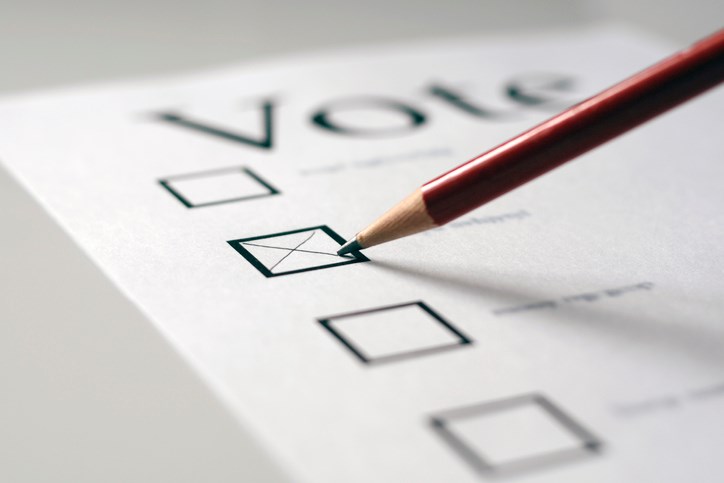Don’t believe the pundits, Blue Checkmarks, or Mary Polak: “vote splitting” isn’t real.
Vote splitting is an imaginary concept for political nerds akin to theorizing the scenarios where Batman beats Superman. It’s impossible to know and ridiculous to debate.
Purportedly, vote splitting is the “electoral effect in which the distribution of votes among similar candidates reduces the chance of winning for any of the similar candidates, and increases the chance of winning for a dissimilar candidate.”
It supposedly arises in first-past-the-post electoral systems, like those provincially in British Columbia and federally in Canada.
Examples of vote splitters (“spoilers”) include Ralph Nader in 2000 and the proposed city name of “The Lakehead” — which became Thunder Bay — in 1969.
However, every electorate (all eligible voters in a jurisdiction) consists of a finite number of votes. Therefore, any vote cast for one candidate splits from possible votes that could have been cast for another candidate. That’s the nature of voting.
Conceptually, vote splitting is mired in so many unprovable assumptions that it only exists in make-believe — just like Batman and Superman.
'A second choice may not even exist'
Vote splitting pretends that voters’ second choices are definitively known. But, in our electoral system, voters only register their first choice (their vote) by whatever reasoning — ideological, personal, strategic, or random. How voters would vote if denied their first choice is indeterminable. Presuming otherwise is speculative fantasy.
A second choice may not even exist. Voters can abstain from voting entirely.
Vote splitting assumes all voters vote rationally along ideological lines. But voters can support any candidate by any rubric they choose including metrics divorced from ideology like perceived trustworthiness and likeability.
The whole purpose of political campaigning is to persuade voters — perhaps even against their interests — for support, not to connect voters with their own ideological sensibilities.
After last week’s election, defeated BC Liberal Mary Polak suggested that her party lost seats because the BC Conservatives garnered votes that would have otherwise gone to the BC Liberals.
Before mail-in ballots, Polak’s riding (Langley) tallied these results: NDP - 44.6%; Liberal - 34.8%; Green - 10.9%; Conservatives - 9.6%.
Cumulatively, BC Conservative and BC Liberal votes total 44.4%, virtually tying the BC NDP.
But those 1,400 BC Conservative votes don’t belong to Polak, just as the votes Polak earned don’t belong to the BC Conservative candidate. Votes aren’t transferable.
Would Polak have won if the BC Conservatives had not run? If Polak were off the ballot, would the BC Conservatives have won? Would Polak have won as an independent candidate? If the BC NDP were off the ballot, would the BC Greens have won?
Prove it: 'I dare you!'
If you claim to know, prove it with verifiable certainty. In Polak’s words, “I dare you!”
It’s impossible: Hypothetical counterfactuals aren’t real. This is Batman versus Superman!
Reasonable, sound arguments can muse on alternative outcomes in a multitude of “what if”-scenarios, but they can’t be materially substantiated like the actual election results.
There is a productive conversation about electoral reform for more representative outcomes. But this “vote splitting” hogwash is an assumption-laden fool’s errand.
No candidate is entitled to another candidate’s votes because of a perception of ideological similarity. Thus, vote splitting has no verifiable basis in our electoral system’s reality.
There’s just voting and the hard results voting yields.
Mo Amir is the host of This is VANCOLOUR, a politics and culture podcast available on Apple Podcasts, Spotify, Google Podcasts, and www.thisisvancolour.com.




